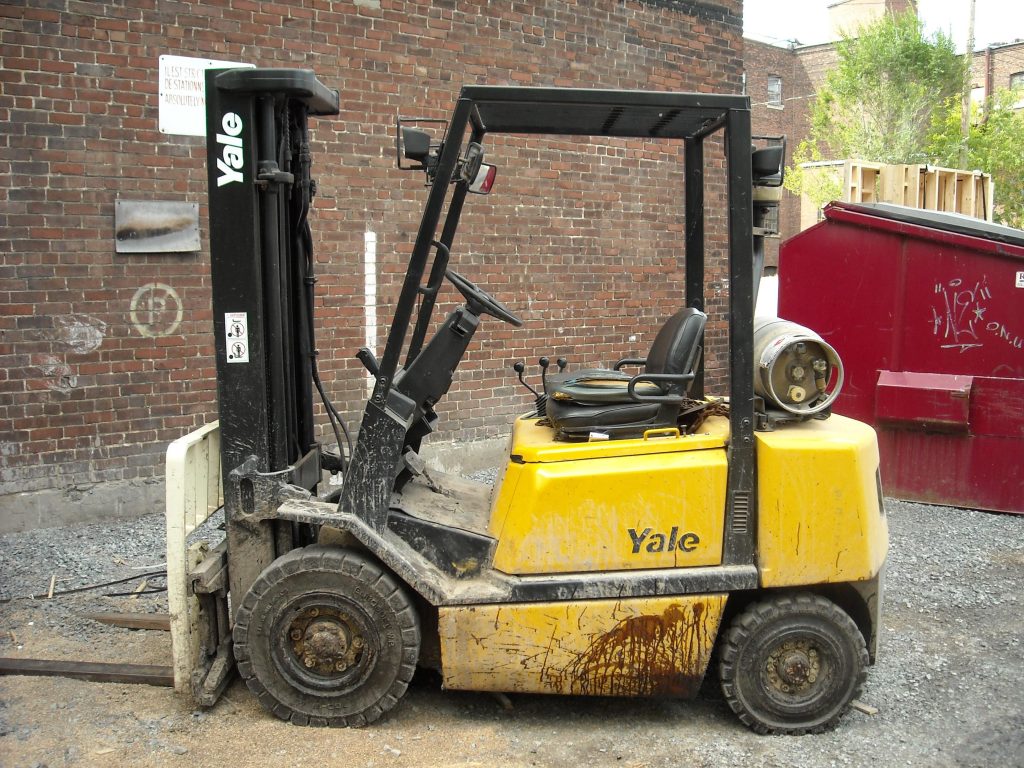 What may seem like a simple worker’s compensation claim can turn into a surprisingly complicated dispute over the nature of the injury and the payment of benefits. For many years, Reginald Crockerham worked as a forklift operator for Weyerhaeuser Holden Wood Products in Tangipahoa Parish. After almost two years of lower back injuries caused by the forklift’s bad tires, suspension, and seating, Crockerham underwent discectomy surgery and a two-level fusion.
What may seem like a simple worker’s compensation claim can turn into a surprisingly complicated dispute over the nature of the injury and the payment of benefits. For many years, Reginald Crockerham worked as a forklift operator for Weyerhaeuser Holden Wood Products in Tangipahoa Parish. After almost two years of lower back injuries caused by the forklift’s bad tires, suspension, and seating, Crockerham underwent discectomy surgery and a two-level fusion.
Crockerham filed a claim for benefits with the Louisiana Office of Workers’ Compensation (OWC). The OWC found that Crockerham proved that he suffered a work-related accident within the scope of his employment with Weyerhaeuser and awarded him temporary total disability (TTD) benefits as well as past and future medical expenses. Weyerhaeuser appealed to Louisiana’s Court of Appeal for the First Circuit.
Weyerhaeuser argued that Crockerham’s injury did not meet the legal definition of “accident” under state law. In a workers’ compensation case, the claimant must prove by a preponderance of the evidence that an accident occurred on the job and harm came from it. An “accident” is an unforeseeable event that occurs suddenly — with or without human fault — and directly causes an injury. The injury must be more than slow deterioration or gradual weakening. La. R.S. 23:1201.
 Louisiana Personal Injury Lawyer Blog
Louisiana Personal Injury Lawyer Blog


 The equivalence of “dotting the i’s and crossing the t’s” in the law is making sure to comply with court procedural rules. One such basic civil court procedure rule is proper service. Proper service is critical in establishing that a court has legal jurisdiction over a defendant. The defendant has a right to know that they are being sued, and they have the right to be present at any hearing or to appear through an attorney. Without proper service, a court may dismiss a lawsuit. One can have a valid and strong claim for a lawsuit, but without proper compliance with court rules, the case may never even be heard. The importance of following procedure is highlighted in this Workers’ Compensation case heard in the Louisiana Fourth Circuit Court of Appeals.
The equivalence of “dotting the i’s and crossing the t’s” in the law is making sure to comply with court procedural rules. One such basic civil court procedure rule is proper service. Proper service is critical in establishing that a court has legal jurisdiction over a defendant. The defendant has a right to know that they are being sued, and they have the right to be present at any hearing or to appear through an attorney. Without proper service, a court may dismiss a lawsuit. One can have a valid and strong claim for a lawsuit, but without proper compliance with court rules, the case may never even be heard. The importance of following procedure is highlighted in this Workers’ Compensation case heard in the Louisiana Fourth Circuit Court of Appeals. What happens if you are exposed to something dangerous at work? In the not too distant past, there would be no hope of restoration and only devastation. Today, with gratitude to some excellent lawyers and lawmakers, there are legal protections for people who are exposed to hazardous working conditions. Negligent companies can still be required to pay damages even for a 10-year-old oil spill. In several cases from a 2006 Lake Charles oil spill, the Louisiana Third Circuit Court of Appeal affirmed a damage award despite the award being significantly higher than other damage awards in similar cases.
What happens if you are exposed to something dangerous at work? In the not too distant past, there would be no hope of restoration and only devastation. Today, with gratitude to some excellent lawyers and lawmakers, there are legal protections for people who are exposed to hazardous working conditions. Negligent companies can still be required to pay damages even for a 10-year-old oil spill. In several cases from a 2006 Lake Charles oil spill, the Louisiana Third Circuit Court of Appeal affirmed a damage award despite the award being significantly higher than other damage awards in similar cases.  Courts are often overflowing with frivolous lawsuits. In order to remedy this, defendants can file an exception for no right of action. If granted, the lawsuit is dismissed because the plaintiff cannot prove any facts that would support the claim.
Courts are often overflowing with frivolous lawsuits. In order to remedy this, defendants can file an exception for no right of action. If granted, the lawsuit is dismissed because the plaintiff cannot prove any facts that would support the claim.  Perhaps one of the biggest myths about the law is that you can bring a lawsuit anywhere about anything. In reality, a court must have jurisdiction in order to hear a case. Jurisdiction is the power of a legal body to make binding decisions over the people involved. In addition to having jurisdiction over the parties to the case, the court must also have subject matter jurisdiction. Subject matter jurisdiction is the ability for a court to hear the
Perhaps one of the biggest myths about the law is that you can bring a lawsuit anywhere about anything. In reality, a court must have jurisdiction in order to hear a case. Jurisdiction is the power of a legal body to make binding decisions over the people involved. In addition to having jurisdiction over the parties to the case, the court must also have subject matter jurisdiction. Subject matter jurisdiction is the ability for a court to hear the  Learning of an illness is always terrifying. But what happens when it affects your everyday life and your ability to work? Hopefully, for most, the illness passes quickly. However, for people with chronic health issues, extended absences from work may cause issues at work, despite statutory protections. Experienced attorneys can help you navigate labor and employment law, but knowing your rights is the first step. The Fourth Circuit Court of Appeals ruled in favor of a New Orleans city employee in one such case of chronic illness.
Learning of an illness is always terrifying. But what happens when it affects your everyday life and your ability to work? Hopefully, for most, the illness passes quickly. However, for people with chronic health issues, extended absences from work may cause issues at work, despite statutory protections. Experienced attorneys can help you navigate labor and employment law, but knowing your rights is the first step. The Fourth Circuit Court of Appeals ruled in favor of a New Orleans city employee in one such case of chronic illness.  Injuries on the job can be devastating. Though the injuries themselves may be painful, the loss of a livelihood that may follow can be even worse. As a result, Louisiana has implemented workers’ compensation programs in order to provide relief for employees who are injured on the job. However, there are caveats that exist and not all injured employees may receive workers’ compensation.
Injuries on the job can be devastating. Though the injuries themselves may be painful, the loss of a livelihood that may follow can be even worse. As a result, Louisiana has implemented workers’ compensation programs in order to provide relief for employees who are injured on the job. However, there are caveats that exist and not all injured employees may receive workers’ compensation.  Workers’ compensation programs may provide you with some relief for an injury. However, it is important to note that depending on your recovery and other factors, you could be taken off such programs. This is because legislators want people to work if they are able. Though many people who depend on workers’ compensation programs truly deserve it, some people abuse the system.
Workers’ compensation programs may provide you with some relief for an injury. However, it is important to note that depending on your recovery and other factors, you could be taken off such programs. This is because legislators want people to work if they are able. Though many people who depend on workers’ compensation programs truly deserve it, some people abuse the system.  The five factor
The five factor